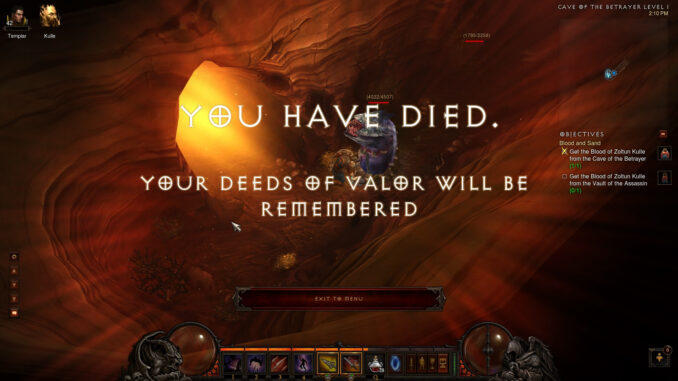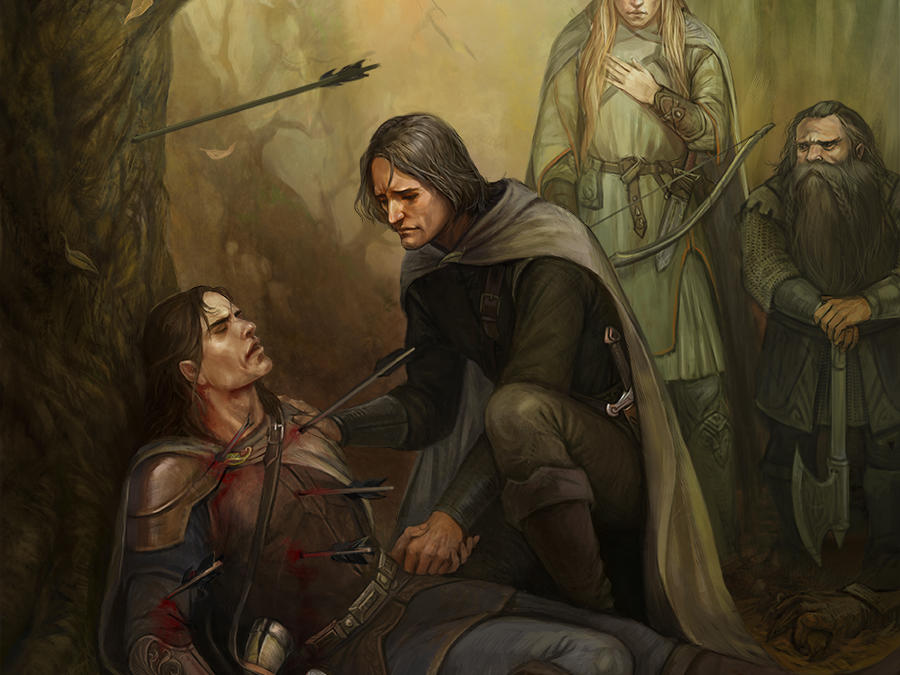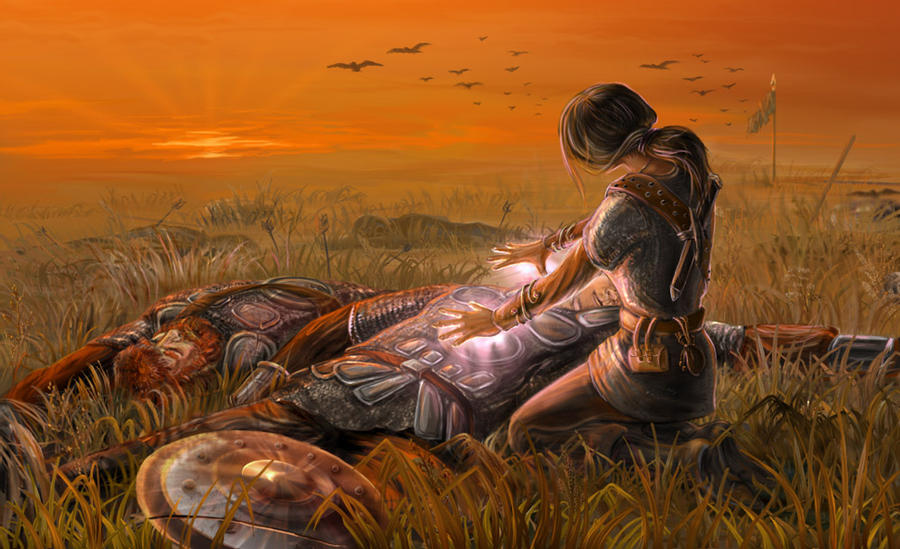
Something that I see brought up on various forums and discussion groups is how tables and groups handle the concept of character death. And there’s a prevailing school of thought that I see from a good number of people that claim that without the risk of character death, there’s no tension or stakes at the table.
Now, to say that character death doesn’t have a place in a game would be disingenuous, because that is not the case. Risk of harm and injury can certainly heighten the tension of an important roll, and character death is pretty much the extreme end of that spectrum. But too often I see them assume that because it’s so extreme, that it must be the best consequence for failure. And that’s dangerous to a game. It’s dangerous because it’s boring.
Take a step back and think about it. 99 times out of 100 (and I would actually venture that those odds are even higher), character death is the least interesting option on the table as far as a potential consequence for a character. That’s it. That’s the end of that character’s story. There’s nothing left for them after that final failed death saving throw (or however your system of choice handles character death). And to make matters worse, that can be the end of the actual player’s involvement for the night, especially if it’s early on in the session. Even if they have a backup character at the ready, it still takes time for the DM to figure out how to bring that new character into the game, tying them into the group and the greater campaign narrative which is a headache and a half in its own right.
But the bigger fact is that character death completely ignores the fact that there are other, more interesting narrative consequences that can happen to the character. They failed their check to cross the pits of despair while chasing after the bad guy? Well guess what, they manage to successfully navigate the pits, but it took them so much time that they have no hopes of catching the villain to stop this step of their dastardly plan, forcing them to come up with another plan. Or they make it across, but their prized magical sword is torn from their belt, plummeting into the inky blackness below. Or you must find another way around the pits, taking up valuable time. All of these are way more compelling consequences than “you plummet into the blackness below, roll up a new character.”
This can even extend into combat – instead of knocking the PC unconscious and forcing them to start making death saving throws, instead the blow knocks them unconscious and leaves them a nasty scar that’s going to cause people to recoil from them. Or it bites deep into their ankle giving them a limp that is going to hinder them at dramatically appropriate times. Something that’s gonna hurt, but isn’t going to take the character out of the story.

Heck, there are even game systems that write this into the rules – take a look at the 2nd edition of 7th Sea by John Wick. Rules as written, a Hero cannot be killed by a bad turn of the dice. They may be beaten, robbed, maimed, and have every other flavor of misfortune heaped upon them, but they cannot be killed unless a capital V Villain takes an action to deliberately murder a helpless Hero. Not just a random cutpurse or gang of back alley thugs, but a major antagonist. Furthermore, it’s expected that the Narrator and Player have a conversation of “What would your Hero lay his life down for? How would you like to see them go out?” And then when something approaching that moment draws near, the dramatic tension ratchets to an even higher degree.
Furthermore, many games – especially heroic fantasy games – have magical spells or effects that can reverse and cheapen death as a consequence. Now, can a character being brought back from the dead have lasting effects that can provide for additional fodder at the table? Sure! They absolutely can. But now we’re back into the idea of it being “something else” that is giving the character consequences. The “death” was just the vehicle for the more interesting consequences.

This isn’t to say that you should never kill a character or that they should always have ludicrous plot armor that protects them from random chance. There are times that death should be on the line. But I do think that you should try to find another consequence first. Because I’m of the firm opinion that a character death should feel “earned.” There should be a moment where the DM looks at the rest of the players and says “we’re leaving it all on the table,” and the mood changes as the players prepare for a battle that could see the end of a dear friend.
A character that dies at 1st level because a goblin got a lucky shot doesn’t get remembered. A hero that falls in battle after a titanic struggle against a villain gets immortalized by the survivors.
But like every rule, there are moments where it needs to be broken. A player that throws his character off of a cliff and expects to walk away just because this is the kind of game you run should get his hand figuratively slapped. That’s just poor form.
What are your thoughts on character death? Do you think it always needs to be on the table? I hope I’ve at least given you something to think about with this.
